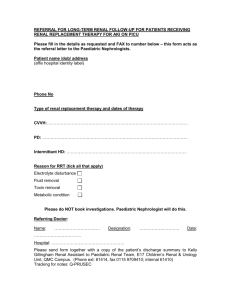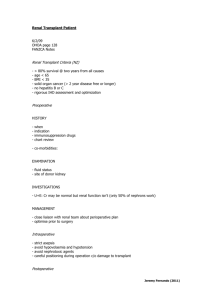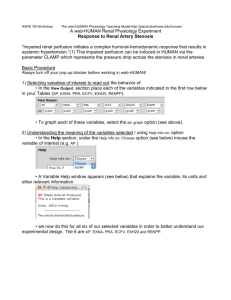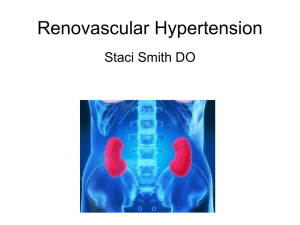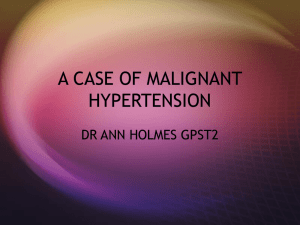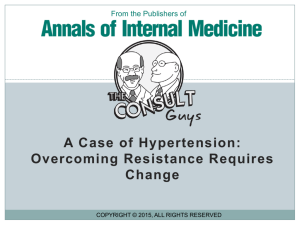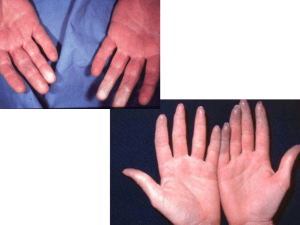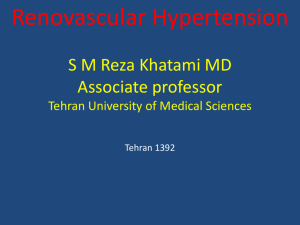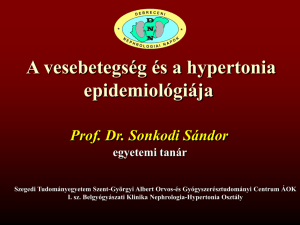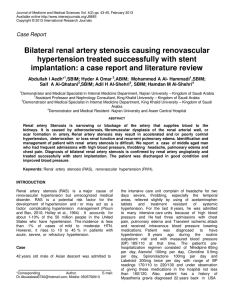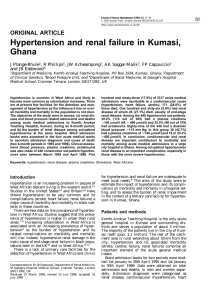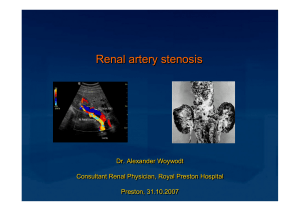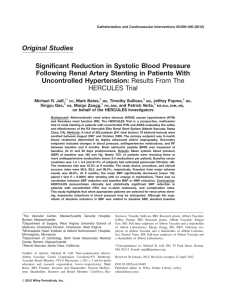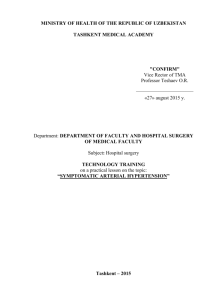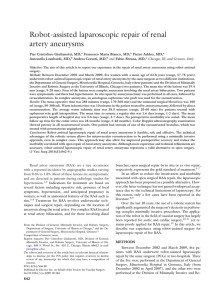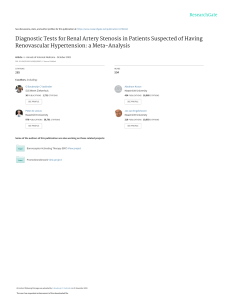Raised Blood Pressure outcomes
advertisement
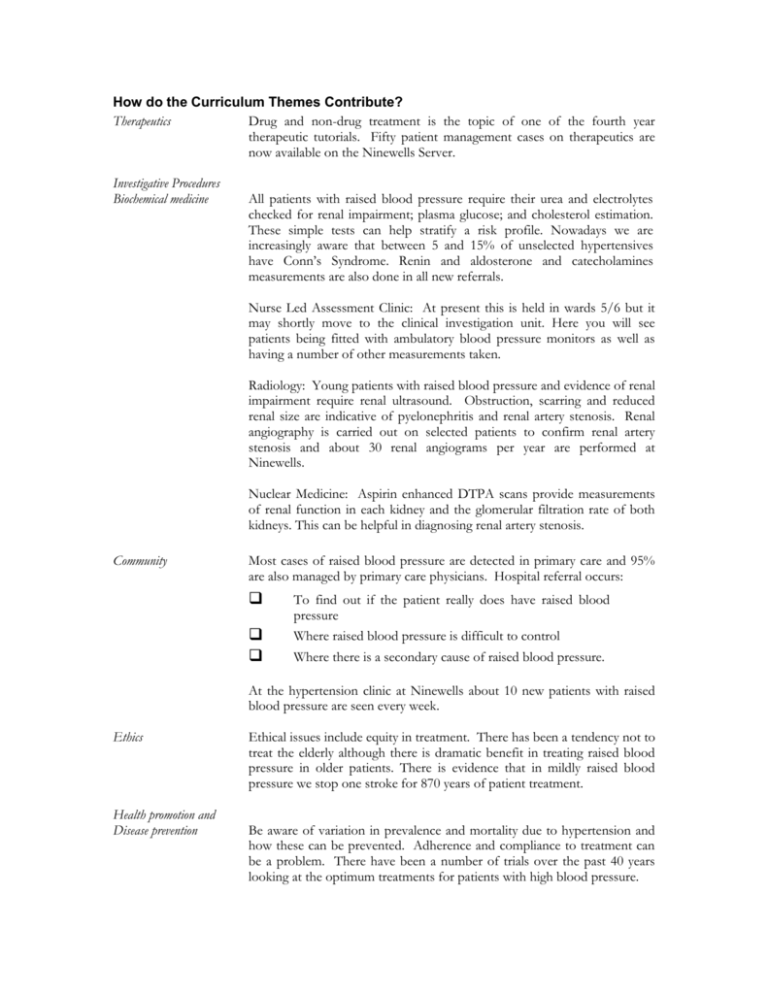
How do the Curriculum Themes Contribute? Therapeutics Drug and non-drug treatment is the topic of one of the fourth year therapeutic tutorials. Fifty patient management cases on therapeutics are now available on the Ninewells Server. Investigative Procedures Biochemical medicine All patients with raised blood pressure require their urea and electrolytes checked for renal impairment; plasma glucose; and cholesterol estimation. These simple tests can help stratify a risk profile. Nowadays we are increasingly aware that between 5 and 15% of unselected hypertensives have Conn’s Syndrome. Renin and aldosterone and catecholamines measurements are also done in all new referrals. Nurse Led Assessment Clinic: At present this is held in wards 5/6 but it may shortly move to the clinical investigation unit. Here you will see patients being fitted with ambulatory blood pressure monitors as well as having a number of other measurements taken. Radiology: Young patients with raised blood pressure and evidence of renal impairment require renal ultrasound. Obstruction, scarring and reduced renal size are indicative of pyelonephritis and renal artery stenosis. Renal angiography is carried out on selected patients to confirm renal artery stenosis and about 30 renal angiograms per year are performed at Ninewells. Nuclear Medicine: Aspirin enhanced DTPA scans provide measurements of renal function in each kidney and the glomerular filtration rate of both kidneys. This can be helpful in diagnosing renal artery stenosis. Community Most cases of raised blood pressure are detected in primary care and 95% are also managed by primary care physicians. Hospital referral occurs: To find out if the patient really does have raised blood pressure Where raised blood pressure is difficult to control Where there is a secondary cause of raised blood pressure. At the hypertension clinic at Ninewells about 10 new patients with raised blood pressure are seen every week. Ethics Health promotion and Disease prevention Ethical issues include equity in treatment. There has been a tendency not to treat the elderly although there is dramatic benefit in treating raised blood pressure in older patients. There is evidence that in mildly raised blood pressure we stop one stroke for 870 years of patient treatment. Be aware of variation in prevalence and mortality due to hypertension and how these can be prevented. Adherence and compliance to treatment can be a problem. There have been a number of trials over the past 40 years looking at the optimum treatments for patients with high blood pressure. Problem as seen by the Doctor Raised Blood Pressure Problem as experienced by your patient System links Cardiovascular/Endocrine What a doctor will be able to do: 1 2 3 4 5 6 7 How was your patient identified and what relevant examination was carried out on their initial presentation. Measurement of blood pressure with a mercury/anaeroid sphygnomanometer Ambulatory blood pressure monitoring What investigations did your patient undergo looking for end organ damage? What is the incidence of raised blood pressure in Tayside? Relate this to the incidence of stroke and heart disease in Tayside What lifestyle advice did you give your patient and how was this received? What were his changeable and unchangeable risks What are the current guidelines of the British Hypertension Society for the treatment of raised blood pressure? How do these differ from the SIGN guidelines? How a doctor approaches their practice: 8 9 10 Relate the common therapeutic options to their underlying mechanism of action. How do the following influence your decision to treat: Age Gender Existence of other disease processes What factors in the history contribute to the decision to treat? Doctor as a professional: 11 12 Who should be involved in the long-term follow up of such patients so that we can ensure optimal treatment? What is the “Rule of Halves”? Under what circumstances is the decision made to refer patients for further investigations. Do you understand that sometimes hypertension results from another disease: when should this be investigated?


